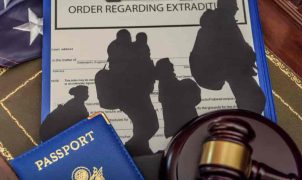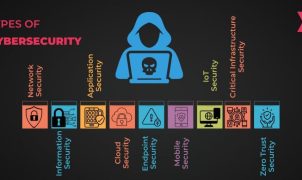
Dual citizenship, also known as dual nationality, is the status of holding citizenship in two different countries. The prevalence of individuals with dual citizenship has become a global phenomenon, with an increasing number of people around the world opting for this path. Dual citizenship comes with many advantages, such as freedom of movement, legal protection, and opportunities in personal and professional life. However, it also poses a series of legal questions and challenges.
I. Why the Increase in Dual Citizenship? – A Detailed Analysis
The phenomenon of dual citizenship, or dual nationality, is on the rise, with more and more individuals embracing the status of being citizens of two distinct countries simultaneously. This surge in dual citizenship is underpinned by a variety of factors, reflecting the changing global landscape and the opportunities and freedoms that it affords. In this section, we will delve into the reasons behind the increase in dual citizenship and explore how it has become an attractive option for many individuals worldwide.

1.1 Opportunity and Freedom
One of the primary drivers of the increase in dual citizenship is the allure of opportunity and freedom. Owning citizenship in two countries opens doors to a myriad of prospects that were once limited to single-citizenship holders.
Education: A significant motivation for obtaining dual citizenship is the facilitation of educational pursuits. Students with dual citizenship can access foreign education systems more easily, often with reduced or waived international student fees. This not only expands access to quality education but also reduces the financial burden on students and their families.
Employment: Dual citizenship offers a competitive edge in the global job market. It allows individuals to seek employment opportunities abroad without the constraints of work visas and permits. Multinational corporations often prefer hiring dual citizens due to their ability to navigate cross-border transactions and cultural nuances effortlessly.
Business Ventures: Entrepreneurs and business professionals benefit from dual citizenship as it provides access to international markets and investment opportunities. Dual citizens can establish businesses in multiple countries, facilitating cross-border trade and commerce.
Travel: Dual citizenship eliminates the need for extensive visa applications and simplifies travel. Individuals can visit family members, explore new destinations, and experience different cultures without the usual bureaucratic obstacles.
1.2 Legal Protection and Security
Dual citizenship also offers legal protection and a safety net that is particularly valuable in an unpredictable world. Having citizenship in two countries can serve as a shield in times of crisis, ensuring personal safety and security.
Political Instability: Dual citizenship provides an escape route in the event of political instability, civil unrest, or armed conflict in one’s home country. It secures a sanctuary in the second country, where the individual can seek refuge and protection.
Discrimination and Persecution: In cases where discrimination or persecution based on race, religion, gender, or political beliefs is a concern, dual citizenship provides a haven. It allows individuals to move to a more tolerant and inclusive environment.
Human Rights: Dual citizenship bolsters an individual’s human rights. It offers recourse in the face of human rights violations in one’s home country, enabling the pursuit of justice and the preservation of fundamental rights.
Safety Nets: Dual citizens have access to the legal systems and social benefits of both countries, ensuring a safety net in times of illness, unemployment, or other life challenges.
1.3 Cultural Connections
In some instances, dual citizenship is motivated by cultural and familial ties. Many individuals have family connections in two countries, and dual citizenship allows them to maintain a deep connection with both their heritage and their present environment.
Family Reunification: Dual citizenship facilitates family reunification. It allows family members who may be citizens of different countries to live together without the complications of immigration rules and visa restrictions.
Cultural Preservation: Some individuals are motivated by the desire to preserve and celebrate their cultural heritage. Dual citizenship enables them to actively engage in cultural practices, language, and traditions from both countries.
Community Engagement: Dual citizenship encourages engagement in international communities. It fosters a sense of belonging to global networks and promotes cross-cultural understanding and cooperation.
1.4 Investment and Economic Benefits
Dual citizenship can also be seen as a smart economic choice. It opens up opportunities for investment, property ownership, and asset diversification, making it an attractive option for those seeking financial security and growth.
Real Estate Investment: Dual citizens can invest in real estate and property markets in both countries, capitalizing on property value appreciation and rental income.
Business Expansion: Entrepreneurs can expand their businesses internationally, leveraging the economic potential of different markets, diversifying risks, and seeking out new customers.
Access to Financial Services: Dual citizens have access to financial services in both countries, which can include banking, investment accounts, and financial instruments, allowing them to optimize their financial holdings.
Asset Protection: Owning property or assets in multiple countries can provide protection against economic downturns in one country and safeguard against currency fluctuations.
The increase in dual citizenship is not a singular trend but a multi-faceted phenomenon driven by a combination of opportunity, freedom, legal protection, cultural ties, and economic benefits. Individuals are increasingly embracing the idea of being citizens of two countries, recognizing the advantages it brings to their personal and professional lives. While dual citizenship offers substantial benefits, it is not without its complexities and challenges, which necessitate a nuanced understanding of the legal and practical aspects involved. As dual citizenship continues to be on the rise, individuals will navigate these intricate pathways, striving to maximize the advantages while addressing the associated responsibilities.
II. Benefits of Dual Citizenship – A Detailed Analysis
Dual citizenship, the status of being a citizen of two distinct countries, offers a wide range of advantages and opportunities to those who hold this unique legal status. In this section, we will delve into the benefits of dual citizenship, exploring how it provides freedom, legal protection, and opens up new horizons for individuals in terms of education, employment, business, travel, and personal growth.

2.1 Freedom of Movement
One of the most prominent benefits of dual citizenship is the freedom of movement it grants to individuals. Dual citizens have the ability to travel, live, and work in either of their two countries of citizenship with relative ease.
Education: Dual citizenship greatly simplifies the process of studying abroad. Students can access educational institutions in both of their countries, often with the benefit of reduced tuition fees and a more straightforward admission process. This opens the door to a wider range of educational opportunities, enhancing academic and personal growth.
Work and Employment: Dual citizenship eliminates the need for work visas or permits when seeking employment in either of the two countries. This simplifies the process of job hunting and offers a competitive edge in the global job market. Multinational companies often prefer to hire dual citizens for their adaptability to cross-border business and cultural nuances.
Family Reunification: Dual citizenship enables family members who are citizens of different countries to live together without the complications of immigration rules and visa restrictions. This promotes family unity and allows relatives to share their lives more closely.
Retirement Abroad: Many dual citizens choose to retire in one of their countries of citizenship. This can be particularly attractive in terms of cost of living, healthcare options, and quality of life.
2.2 Legal Protection and Security
Dual citizenship provides a layer of legal protection and security that can be invaluable in times of crisis, political instability, or when facing discrimination.
Political Instability: In nations experiencing political turmoil, dual citizenship offers an exit strategy. Dual citizens can seek refuge in their second country, where they enjoy the safety and protection of its legal system.
Discrimination and Persecution: In cases where discrimination or persecution based on factors such as race, religion, gender, or political beliefs is a concern, dual citizenship serves as a lifeline. It allows individuals to move to a more tolerant and inclusive environment.
Human Rights: Dual citizenship strengthens an individual’s human rights. It provides a platform for seeking justice and upholding fundamental rights, even when faced with human rights violations in their home country.
Safety Nets: Dual citizens can access the legal systems and social benefits of both countries, ensuring a safety net in times of illness, unemployment, or other life challenges. This social support is a valuable buffer against adverse circumstances.
2.3 Career Opportunities
Dual citizenship opens doors to a wide array of career opportunities, offering a competitive edge in the professional world.
International Job Market: Dual citizens are well-equipped to navigate the international job market. They can apply for jobs in foreign countries without the hindrance of work visas and are often favored by multinational corporations for their global perspective.
Entrepreneurship and Business: Dual citizenship is advantageous for entrepreneurs and business professionals. It allows them to establish businesses in multiple countries, explore new markets, and engage in cross-border trade and commerce. This provides diversification and risk mitigation for business ventures.
Cultural Exchange and Innovation: Dual citizens are exposed to diverse cultures, ideas, and practices. This cultural exchange can foster innovation, creativity, and a broader worldview, enhancing their problem-solving abilities and adaptability.
2.4 Investment and Economic Benefits
Dual citizenship can be seen as a strategic economic choice, offering access to various investment and financial benefits.
Real Estate Investment: Dual citizens can invest in real estate markets in both countries, capitalizing on property value appreciation and rental income. They can diversify their property portfolio and take advantage of opportunities in both markets.
Business Expansion: Entrepreneurs can expand their businesses internationally, taking advantage of the economic potential of different markets, diversifying risks, and accessing new customer bases.
Access to Financial Services: Dual citizens have access to financial services in both countries, including banking, investment accounts, and financial instruments. This allows them to optimize their financial holdings and benefit from competitive financial products and services.
Asset Protection: Owning property or assets in multiple countries can provide protection against economic downturns in one country and safeguard against currency fluctuations. This diversification can reduce financial risks.
2.5 Personal Growth and Development
Beyond the economic and professional benefits, dual citizenship can facilitate personal growth and development.
Cross-Cultural Understanding: Dual citizens often have a deeper understanding of different cultures, languages, and customs. This cultural competency can enhance their interpersonal skills and ability to navigate multicultural environments.
Global Citizenship: Dual citizenship encourages a sense of global citizenship. It fosters the idea that individuals are members of the global community and emphasizes the importance of contributing positively to the world.
Language Skills: Living in two countries often leads to bilingualism or multilingualism, which can be a valuable skill in today’s interconnected world.
Adaptability and Resilience: Dual citizenship promotes adaptability and resilience. Dual citizens are accustomed to navigating multiple legal systems, societal norms, and cultural practices, which hones their adaptability and problem-solving abilities.
Dual citizenship is a status that provides individuals with a wealth of opportunities, legal protections, and personal growth prospects. It enhances freedom, offers a safety net in times of uncertainty, and opens doors to a myriad of career and financial benefits. However, it also requires a nuanced understanding of the legal and practical aspects involved and comes with certain responsibilities. As dual citizenship continues to gain popularity, individuals will navigate these complexities while striving to maximize the benefits it offers.
III. Legal Challenges and Questions – A Detailed Analysis
While dual citizenship offers a multitude of benefits, it also presents a unique set of legal challenges and questions that dual citizens must navigate. In this section, we will delve into the intricacies and complexities associated with the legal aspects of dual citizenship, including taxation, military obligations, selective service, immigration policies, and the protection of personal data.

3.1 Taxation and Assets
One of the foremost legal challenges faced by dual citizens is the intricate issue of taxation. Holding citizenship in two countries often means dual reporting requirements and potential financial implications.
Income Tax: Dual citizens may be subject to income tax in both countries of citizenship. Determining which country has the primary taxation rights and whether a tax treaty between the two countries exists can be complex. Professional tax advice is often necessary to optimize tax liability.
Reporting and Compliance: Dual citizens must comply with tax reporting requirements in both countries. This includes reporting income, assets, and financial accounts. Failure to adhere to these requirements can result in penalties and legal complications.
Double Taxation Relief: Many countries have double taxation agreements to avoid the double taxation of income. Dual citizens can benefit from these agreements by claiming tax credits and deductions.
Foreign Financial Accounts: Dual citizens are required to report foreign financial accounts, such as bank accounts, securities, and other financial assets held outside both countries. Failing to report these accounts can result in penalties.
3.2 Military Obligations
Military obligations are another legal challenge faced by dual citizens, as some countries require their citizens to fulfill mandatory military service.
Conscription Laws: In countries with compulsory military service, dual citizens may be called upon to serve in the armed forces. Understanding the conscription laws of both countries is crucial.
Alternatives and Exemptions: Some countries offer alternatives to military service, such as civil service or payments to opt out of conscription. Dual citizens must be aware of these alternatives and exemptions.
Military Commitment Period: The length of military service can vary from one country to another. Dual citizens must be prepared for the possibility of being called upon for extended service commitments.
3.3 Selective Service
In the case of male dual citizens in the United States, they are required to register for the Selective Service System, even if they are living abroad. This registration is mandatory and carries potential consequences if not complied with.
Registration Age: Dual citizens must register with the Selective Service between the ages of 18 and 25. Failing to register can result in a loss of eligibility for various federal benefits, including student financial aid and government employment.
Dual Citizens Living Abroad: Dual citizens residing abroad are not exempt from Selective Service registration. They can register online or by mail and must keep their registration status up to date.
Immigration and Travel Implications: Failure to register with the Selective Service can have immigration and travel implications, including potential delays in visa processing and entry to the United States.
3.4 Immigration Policies
Each country has its own immigration policies, and dual citizens must navigate these regulations when traveling, residing, or working in both of their countries of citizenship.
Visa and Entry Requirements: Dual citizens should be aware of the visa and entry requirements for each of their countries. Entry restrictions can vary based on factors such as citizenship, residency status, and the purpose of travel.
Residence and Work Permits: In some cases, dual citizens may need residence or work permits to legally reside and work in one of their countries. These permits often come with specific requirements and application procedures.
Travel Documentation: Dual citizens must decide which passport to use when traveling between their countries. The choice of passport can impact visa eligibility, entry requirements, and the duration of stay.
National Security Concerns: Some countries have heightened security concerns related to dual citizenship, which can lead to additional scrutiny during border crossings and travel.
3.5 Privacy and Personal Data Protection
Protecting personal information and data is a paramount concern in the digital age. Dual citizens need to safeguard their privacy and personal data in both of their countries.
Data Privacy Laws: Dual citizens should familiarize themselves with data privacy laws in both countries. They may have different regulations related to data protection, which can affect how personal information is collected, used, and stored.
Cross-Border Data Transfer: When personal data is transferred between countries, dual citizens must ensure compliance with cross-border data transfer regulations. Data encryption and secure communication methods may be necessary to protect sensitive information.
Consular Assistance: Dual citizens can seek assistance from the consular offices of their countries in case of data breaches or identity theft. Consular services can help mitigate the legal and practical consequences of these incidents.
Banking and Financial Privacy: Dual citizens with financial accounts in both countries should be aware of banking and financial privacy laws. These regulations govern the disclosure of financial information to tax authorities and foreign governments.
The legal challenges and questions associated with dual citizenship are intricate and multifaceted. Dual citizens must be diligent in adhering to tax regulations, understanding military obligations, complying with Selective Service requirements, navigating immigration policies, and protecting their personal data. Professional advice, legal consultation, and comprehensive knowledge of the legal systems of both countries are essential for successfully managing the legal aspects of dual citizenship. While these challenges can be complex, they should not deter individuals from pursuing the numerous benefits that dual citizenship offers.
IV. Decision-Making and Dual Citizenship Management
The decision to acquire dual citizenship is a significant and life-altering choice that requires careful consideration and a nuanced understanding of the legal, financial, and cultural implications. Once dual citizenship is obtained, effectively managing this status is equally vital. This section delves into the decision-making process and the key aspects of dual citizenship management, including the importance of legal counsel, rights and responsibilities, and cultural sensitivity.

4.1 The Decision-Making Process
Obtaining dual citizenship is a multifaceted decision that demands a deliberate and informed approach. Here are key considerations that individuals should keep in mind:
Legal Consultation: Seeking legal counsel is fundamental. Experienced lawyers can provide guidance on the specific requirements and implications of dual citizenship in both countries, helping individuals make informed choices.
Rights and Responsibilities: Understanding the rights and responsibilities associated with dual citizenship is critical. Individuals must comprehend the legal, financial, and social obligations in both countries.
Long-Term Goals: Dual citizenship is a long-term commitment. Consider how it aligns with your future goals, such as career aspirations, family plans, and retirement preferences.
Legal and Tax Implications: Dual citizens must navigate legal and tax complexities. These may include income tax obligations, asset reporting, and compliance with military service requirements.
Cultural Sensitivity: Dual citizenship often comes with the opportunity to engage with diverse cultures. Being culturally sensitive and adaptable is essential for a harmonious dual citizenship experience.
Family Considerations: If your family members are also eligible for dual citizenship, consider how it will impact their lives and the dynamics within your household.
Dual Citizenship Requirements: Familiarize yourself with the requirements and eligibility criteria for dual citizenship in both countries. These criteria can vary widely, and meeting them is essential for a successful application.
4.2 Legal Counsel and Dual Citizenship Management
Managing dual citizenship effectively requires continuous vigilance and awareness. Legal counsel plays a pivotal role in helping dual citizens navigate the legal landscape of both countries.
Compliance with Legal Obligations: Lawyers can assist in ensuring that dual citizens are fully compliant with legal obligations in both countries. This includes income tax filings, asset reporting, and any other legal requirements.
Cross-Border Legal Matters: In the event of legal matters that span both countries, legal experts can offer insights into the potential challenges and strategies to resolve them.
Amendment and Updates: Dual citizens may need to amend or update personal records, such as names or addresses. Legal advice can facilitate these processes efficiently.
Renewal and Maintenance: Dual citizenship status may require periodic renewals or maintenance. Lawyers can guide individuals on these requirements and help them stay in good standing.
Legal Disputes: In the case of legal disputes, having access to legal representation in both countries is advantageous. Lawyers can provide counsel and representation in court proceedings when necessary.
International Legal Changes: Laws and regulations can change over time. Legal counsel helps dual citizens stay informed about any legal updates that may impact their status.
4.3 Rights and Responsibilities of Dual Citizens
Dual citizens enjoy an array of rights and privileges, but they are also bound by specific responsibilities. Understanding and embracing these rights and responsibilities is integral to managing dual citizenship effectively.
Voting and Political Participation: Dual citizens have the right to vote and participate in political processes in both countries. This includes national elections, local governance, and policy decisions. By engaging in these activities, dual citizens can influence the development and direction of their countries.
Legal Rights and Protections: Dual citizens benefit from the legal rights and protections offered by both countries. These rights include access to legal systems, due process, and protection from discrimination and persecution.
International Travel: Dual citizenship grants the freedom to travel between both countries without extensive visa applications or entry restrictions. This is especially valuable for family visits, business trips, and personal travel.
Career Opportunities: Dual citizens have a broader range of career opportunities. They can explore professions in both countries and seek employment with international companies. This flexibility enhances their professional growth.
Education: Dual citizenship simplifies the pursuit of education in both countries. Students can access scholarships, reduced tuition fees, and a wider array of educational institutions.
Cultural Enrichment: Dual citizenship often leads to cultural enrichment and the opportunity to engage with diverse traditions, languages, and customs. This fosters cultural sensitivity and a broader worldview.
Community Engagement: Dual citizens can actively engage in international communities. This involvement enhances cross-cultural understanding, cooperation, and global citizenship.
Military Service: Some dual citizens may have military service obligations in one or both countries. Fulfilling these obligations is a responsibility that they must be prepared for.
Tax Compliance: Dual citizens are responsible for complying with income tax regulations in both countries. This may involve reporting income, assets, and financial accounts to tax authorities.
Asset Protection: Owning assets in two countries necessitates the protection of financial holdings, including real estate, investments, and bank accounts.
4.4 Cultural Sensitivity and Dual Citizenship
Cultural sensitivity is a fundamental aspect of managing dual citizenship effectively. Embracing the cultures and traditions of both countries contributes to a harmonious and enriching dual citizenship experience.
Language Proficiency: Being proficient in the languages spoken in both countries enhances communication and engagement with local communities.
Respect for Traditions: Respecting and participating in cultural traditions, holidays, and customs demonstrates cultural sensitivity and fosters positive interactions.
Adaptability: Dual citizens should cultivate adaptability, as they are often exposed to different societal norms, behaviors, and practices. Flexibility is key to navigating the cultural diversity that dual citizenship affords.
Community Involvement: Engaging with local communities and participating in cultural events and activities can enrich the dual citizenship experience and foster goodwill.
Cross-Cultural Understanding: Dual citizens should strive to understand the nuances of different cultures, promoting cross-cultural understanding and global cooperation.
In conclusion, the decision to obtain dual citizenship is a pivotal life choice that requires comprehensive deliberation and a thorough understanding of the legal, financial, and cultural implications. Legal counsel is essential for managing dual citizenship effectively, ensuring compliance with legal obligations, and addressing cross-border legal matters. Understanding and embracing the rights and responsibilities of dual citizenship is crucial for maximizing the benefits and navigating the associated responsibilities. Finally, cultural sensitivity enhances the dual citizenship experience, promoting cross-cultural understanding and fostering a deeper connection with both countries.







 Welcome to LawyerNote, your premier destination for expert legal counsel tailored to your unique needs. At LawyerNote, we specialize in navigating the complexities of the legal system, offering comprehensive solutions to our valued clients. With a team of seasoned attorneys covering diverse fields including corporate law, family law, and criminal defense, we’re equipped to handle a wide spectrum of legal matters. Our unwavering commitment to excellence, integrity, and client satisfaction sets LawyerNote apart. Whether you’re grappling with a complex litigation case or seeking guidance on business transactions, LawyerNote is your trusted legal partner every step of the way.
Welcome to LawyerNote, your premier destination for expert legal counsel tailored to your unique needs. At LawyerNote, we specialize in navigating the complexities of the legal system, offering comprehensive solutions to our valued clients. With a team of seasoned attorneys covering diverse fields including corporate law, family law, and criminal defense, we’re equipped to handle a wide spectrum of legal matters. Our unwavering commitment to excellence, integrity, and client satisfaction sets LawyerNote apart. Whether you’re grappling with a complex litigation case or seeking guidance on business transactions, LawyerNote is your trusted legal partner every step of the way.




